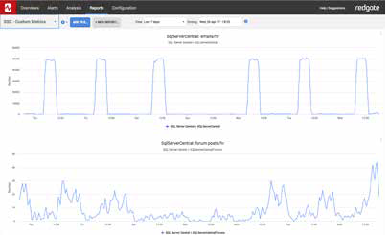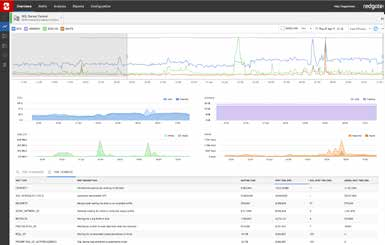Metrics install automatically if you have Redgate Monitor installed.
If you are using Redgate’s SQL Server monitoring tool, Redgate Monitor, you can instantly install and run this metric on your servers.
This metric checks whether your SQL Server installation is using the default TCP port.
It’s widely known that SQL Server 2005 and 2008 listen on TCP port 1433. Keeping this default gives hackers a potential way of attacking your server.
This alert is raised when you are using the default port of 1433 which is a known security risk. You should consider modifying the port to a non-standard, non-default port in order to thoroughly secure your systems.
For information on how to change the TCP a server listens on, see MSDN.
Metric definition
Name
Default TCP Port
Description
This metric checks whether your SQL Server installation is using the default TCP port. It’s widely known that SQL Server 2005 and 2008 listen on TCP port 1433. Keeping this default gives hackers a potential way of attacking your server. For information on how to change the TCP a server listens on, see MSDN http://msdn.microsoft.com/en-GB/library/ms177440(v=sql.90).aspx.
The T-SQL query that will collect data
Instances to collect from
Select all
Databases to collect from
master
Collection frequency
86400
Use collected or calculated values
Leave the Use a calculated rate of change between collections check box unchecked
Metric collection
Enabled
Alert definition
Alert name
Default TCP Port Alert
Description
Raise an alert when the metric value goes
Above the defined threshholds
Default threshold values
| High: | 0 |
| Medium: | |
| Low: |
Raise an alert when the threshold is passed for
1 collection
Alert is
Enabled
 11,091
11,091 
